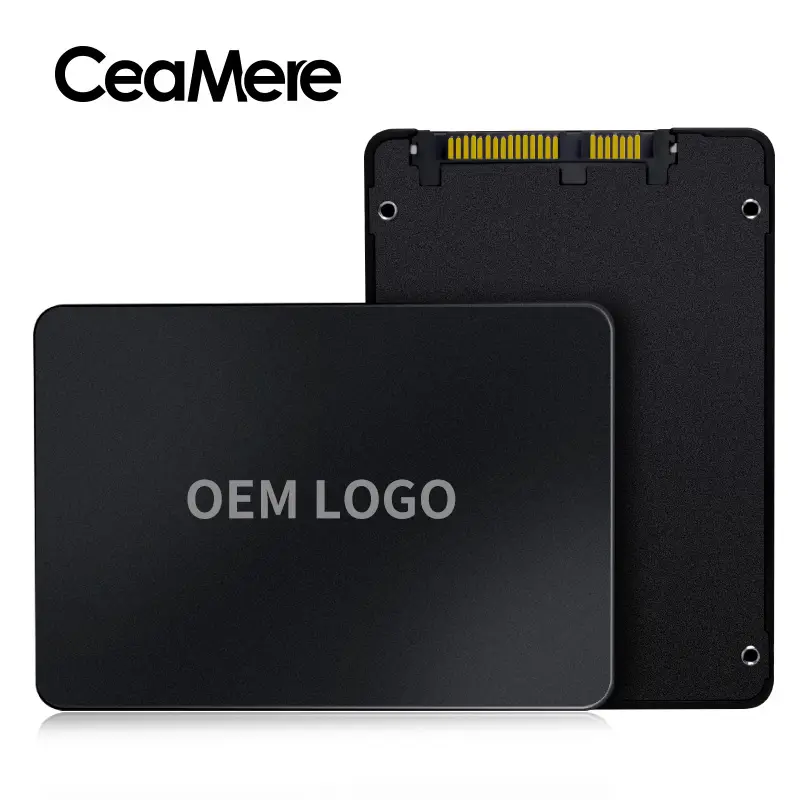When upgrading your business's storage infrastructure, solid state disks (SSDs) are a top choice for their speed, durability, and efficiency. For businesses buying in bulk, partnering with the right computer hardware supplier can greatly impact performance and cost-efficiency. We'll explore key considerations when purchasing SSDs in bulk, such as hardware compatibility, assessing storage needs, understanding SSD endurance, and negotiating with reliable computer hardware suppliers.
Table of contents:
Ensuring Compatibility with Existing Hardware Systems
Evaluating Storage Capacities to Meet Business Needs
Understanding the Importance of SSD Endurance and Lifespan
Negotiating Favorable Terms with SSD Wholesale Suppliers
Ensuring Compatibility with Existing Hardware Systems
Before purchasing SSDs in bulk, it's essential to verify compatibility with your existing hardware systems. Most businesses employ devices such as desktops, laptops, servers, and embedded systems, and SSD compatibility varies depending on the interface type. Popular options like SATA 2.5 SSDs often offer broad compatibility with commercial-grade computers and servers, but it's crucial to confirm specifications. Businesses upgrading aging systems should pay close attention to backward compatibility. For example, if your systems currently use SATA2 or SATA1 interfaces, ensure that the SSDs can downgrade their speeds accordingly. At the same time, physical size and form factor are also vital considerations—2.5" SSDs are industry-standard, but double-check dimensions to prevent installation issues. CeaMere SSDs, for instance, offer 2.5-inch drives with speeds that support various device interfaces, providing higher compatibility for most enterprise environments.
Evaluating Storage Capacities to Meet Business Needs
Every business has unique data storage requirements, and selecting the right storage capacities is crucial when buying SSDs in bulk. For lighter workloads such as office documents and moderate app usage, smaller capacities like 128GB or 256GB may suffice. However, for applications such as data centers, video editing, or large file archiving, businesses should consider SSDs ranging from 1TB to 4TB to prevent storage shortages. Scaling businesses also need flexibility, meaning purchases should take future storage growth into account to avoid disruptions. Brands like CeaMere often provide options ranging from 120GB to 4TB in single-disk capacities, allowing customers to plan their storage inventory with ease. Furthermore, it's also helpful to balance your high-capacity needs with performance requirements to ensure smoother multitasking and faster data retrieval.
Understanding the Importance of SSD Endurance and Lifespan
Not all SSDs are created equal when it comes to durability. When buying in bulk, long-term performance factors like endurance and lifespan should rank high on your priority list. Endurance is usually measured in Terabytes Written (TBW), which indicates how much data can be written to the drive over its lifetime before it starts degrading. For businesses dealing with daily heavy workloads, such as databases or media production, opting for SSDs with higher TBW ratings is a must. You should also evaluate other durability metrics, such as resistance to shocks and vibrations. For example, CeaMere SSDs offer aluminum alloy shells and energy-efficient designs, adding to their overall reliability. Warranty periods are another indicator of durability, typically ranging from 3 to 5 years for trusted brands. Prioritizing endurance ensures you won’t face frequent replacements or unexpected failures, which can interrupt operations and lead to data loss.
Negotiating Favorable Terms with SSD Wholesale Suppliers
Purchasing SSDs in bulk is as much about improving cost efficiency as it is about acquiring quality products. Thus, collaborating with a reputable solid state disk wholesale supplier is critical. Start by identifying manufacturers known for reliable SSD production and consult resellers or distributors with enterprise-grade client portfolios. Suppliers like Smare not only manufacture quality SSDs, such as CeaMere SATA 2.5 models, but can also accommodate bulk orders with competitive pricing and reliable certifications like FCC and RoHS. When negotiating, consider asking for discounts, scaling options for larger orders, or additional testing for quality assurance. Checking their return policies, lead times, and logistics support can also mitigate risks on your end. Some suppliers even provide a sample or trial order for testing purposes, making it easier to assess product quality before committing to a large purchase.
Choosing the right SSDs for your business doesn't end with selecting technical specifications. Consider how compatibility, storage capacity, durability, and supplier negotiations intersect with your operational needs and long-term goals. High-performance SSDs like those from Ceamere, available through Smare's solid state disk wholesale program, offer broad versatility for various business applications, from server environments to commercial desktop integrations. Making an informed choice can boost productivity, enhance data management, and ensure an efficient IT infrastructure for years to come. If you're looking to upgrade or expand your storage, visit reliable computer hardware suppliers and ensure you're investing in solutions designed to meet your business’s unique requirements.

Comments
Post a Comment